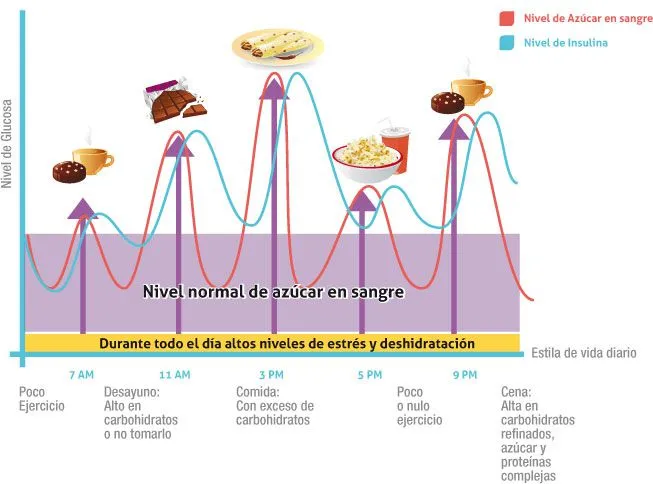Glucose peaks are associated with cognitive deterioration and dementia between people with diabetes, according to a study published last week in Care Diabetes, the official publication of the American Diabetes Association.By glucose spikes we understand sudden and uncontrolled rises or declines of the blood sugar level.A glycemia variability that has serious consequences.
Andreea M. Rawlings, from the John Hopkins Bloomberg School of Public Health in Baltimore, and his colleagues have examined in recent years the correlation between glucose peaks with the risk of dementia and cognitive decline after 20 years with diabetes.The study was carried out among almost 13,000 participants in the United States.
The results of the study published in Diabetes Care
For an average time of 21 years, dementia took place in 1,105 participants.Among people with diabetes, each decrease of 5 μg / ml by 1.5-AG increased the estimated risk of dementia by 16% (Hazard Ratio 1.16, p = 0.032).For cognitive decrease among participants with diabetes and HBA 1C & LT; 7% (53 mmol / mol), those with glucose peaks had a 0.19 score decrease in 20 years (p = 0.162) compared to those without those without those withoutPicos.Among the participants with diabetes and HBA 1C ≥ 7% (53 mmol / mol), those with glucose peaks had a decrease in the z score of 0.38 compared to people without glucose peaks (P&T 0.001).No significant associations were found in people without diabetes.
Among the participants with diabetes, glucose peaks are a risk factor for cognitive deterioration and dementia, the authors write."The targeting of glucose peaks, in addition to medium glycemia, can be an important way for prevention."
If you want to read the full article published on the risk of glucose and dementia peaks, you can go to this link
Andreea M. Rawlingsdemenciadementia and Cognitive Diabetes and DiabetesDiabetes Caresquet of Public Health John Hopkins Bloombergpicos de Glucosa



